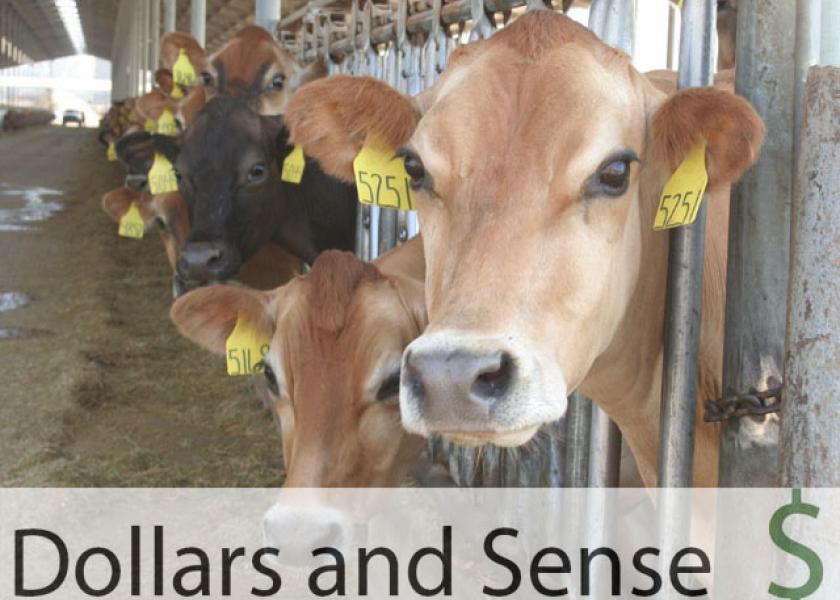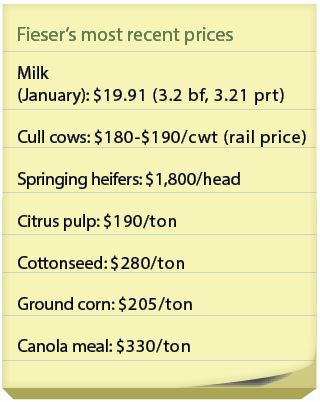Florida’s Low-SCC Challenge

 |
Gerald Fieser
Deland, Fla.
The Fiesers milk 600 cows and graze and hay 500 acres in east-central Florida.
Producing high-quality milk is one of the most important tasks on any dairy farm. We strive to do the best we can in the environment we live in, where it is an ongoing challenge to produce milk of the highest quality that our fluid milk customers expect and demand.
Adhering to proper milking and cleaning procedures, we are able to maintain low bacteria year-round as measured by three bacteria tests: SPC, PI and LPC. Maintaining low somatic cell counts (SCC), however, is challenging for us.
Florida has basically two seasons: nice and summer. It is much easier to produce high-quality milk this time of year than summer. Summers in Florida are not always easy for dairy cows, especially Holsteins housed on pasture with cooling ponds like ours.
With the high humidity and rain, mud can become a problem, which can result in higher somatic cells. It has been my observation that even without mud, high humidity correlates with higher somatic cells, especially after cows have experienced this stress for several months.

Cattle are tested regularly for SCC, and cows with high counts might be treated with antibiotics. Trying to maintain SCC under 400,000 cells/ml in the summer has resulted in a larger hospital herd and increased use of antibiotics.
Otherwise-healthy cows that do not respond to treatment are culled. We culture monthly bulk tank samples to monitor the types of pathogens with which we’re dealing.
Historically, we were more seasonal in our calving, preferring most of our cows dry in the summer. Our co-op now penalizes us if our production gets too out of line with our fluid milk demands. Other than these ridiculously low milk prices we are now experiencing, maintaining year-round low SCC milk is one of our biggest challenges.







